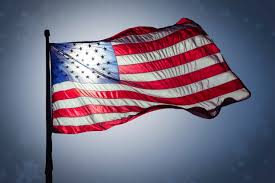Why do we pray?
The Haftarah portion for today is taken from the Book of Samuel. This is the story of a barren woman, Channah, one of two wives of a man named Elkanah. Elkanah loves Channah and tries to show her affection. But this is insufficient for Channah and she goes to Shiloh to pray for a son who she would dedicate to God’s service.
What is it to Pray?
Is it asking for something?
God I want a pony.
I have a vision akin to sitting on the lap of a giant Santa Claus asking for stuff-
A new iPhone, maybe a new Audi convertible or
if you like cooking gadgets as I do,
a new Vitamix 7500.
Stuff that makes us feel good on the surface- But this is a rather pediatric view of how God fits into our lives.
A more sophisticated version of prayer is to seek connection;
to reach out, wishing someone you love will be healthy,
that the distance we often feel from another person will be bridged
and we are reconciled.
Prayer is to admit a feeling of emptiness or a void and a yearning for it to be filled.
Channah’s story is fascinating. She yearns for a child. The void is in her life is both spiritual and physical. Her husband, clueless, as many of us are, tries to assuage her with baubles. He even lavishes attention on her. But none of this can penetrate beyond the surface and is essentially meaningless to Channah. She turns to prayer.
Prayer is actually difficult, it is uncomfortable because it requires of us to be vulnerable.
We must bare our soul- to God and to ourselves.
We must look into the mirror, as it were,
and see that in the cold harsh light of reality,
the reflection we see is not as beautiful or perfect as we pretend.
That new vitamix is a great toy, but if I do not have someone to cook for
it is just another expensive gadget collecting dust on the countertop.
So Channah prays a fervent prayer. And as if to emphasize the point, our great prophet Eli mistakes this woman for a drunkard and harshly rebukes her.
But the prayer Channah prays gives her strength,
she becomes resolute enough, comfortable enough in her own skin, not to accept the scorn of the Prophet and speak in his presence explaining herself. It turns Eli’s heart.
Prayer is powerful it can be awesome and even frightening.
Do we have the courage and inner strength
to look honestly inside ourselves and see truth,
our unvarnished reality with its shortcomings and desires unfulfilled?
It is hard and scary,
but if we are willing to try,
the results can be extraordinary.
And now we read the story of Channah.

